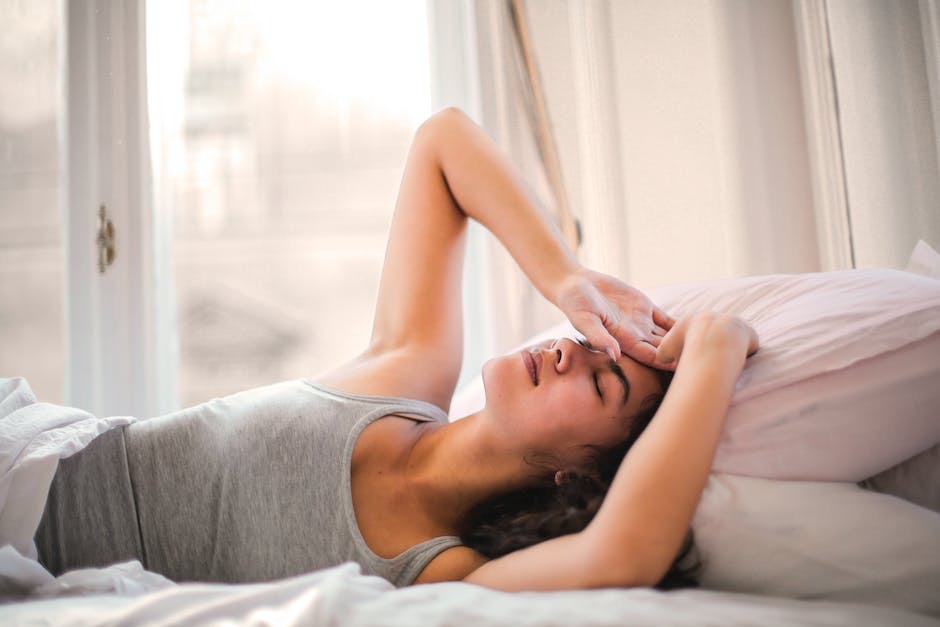Why Proper Sleep Hygiene Is Vital for Women in Recovery
It is common for individuals seeking recovery from mental health, trauma, and substance abuse to believe that participating in a treatment program will bring lasting healing to their life. While it is true that treatment will help individuals address and overcome problematic patterns of thoughts, emotions, and behaviors, lasting healing requires more than merely participating in a treatment program. Regardless of treatment, individuals will need to strive to implement healthy habits into their lives. One aspect of health that many individuals often dismiss in early treatment and recovery is sleep hygiene.
It is vital to become familiar with the importance of sleep hygiene, especially for those in recovery. Women, specifically, may be more prone to sleep problems due to hormonal changes and because they experience increased risks of mental health disorders. Because of this, women in recovery must work to establish healthy sleep hygiene practices to increase the effectiveness of treatment and set themselves up for a successful – and lasting – recovery journey.
What Is Sleep Hygiene?
Sleep hygiene refers to the habits and practices an individual utilizes to have a good night’s rest. Proper sleep hygiene brings about sounder sleep. On the other hand, improper or unhealthy sleep hygiene can cause a person to experience interrupted sleep or an inability to fall asleep altogether.
Every person has unique sleep habits and practices. However, most of the time, these habits are unintentional and form from repeated behaviors. Therefore, when addressing sleep hygiene, it is necessary to foster healthy habits intentionally. The Centers for Disease Control and Prevention (CDC) recommends several habits that are known to improve sleep health:
- Being consistent with wake and sleep times every day
- Ensuring that one’s sleep environment is quiet, dark, and cool in temperature
- Removing electronic devices from the bedroom
- Avoiding large meals and caffeine before lying down to sleep
- Exercising during the day
Poor Sleep Hygiene Resulting From Substance Abuse and Mental Health Disorders
Although proper sleep hygiene is essential for everyone, it is even more critical for individuals in recovery. Untreated mental health disorders and substance use disorders (SUDs) are catalysts for self-destruction. These conditions impair self-control, interfering with an individual’s ability to cope with challenging life experiences. Additionally, they cause long-lasting physical, emotional, mental, and spiritual harm.
Depending on an individual’s drug of choice or mental health symptoms, a person may experience interrupted sleep as a sign of drug withdrawal. Further, many may have trouble falling asleep due to high cortisol (stress) levels in their system. This can perpetuate substance use as means of falling asleep. Sleep hygiene is often pushed to the wayside due to addiction and other mental health problems.
Treatment is an incredible resource to help individuals establish initial sobriety and learn healthier ways to navigate stress and anxiety. Outside of treatment, however, it is vital that individuals in recovery work on other aspects of their health to reestablish internal balance. Alongside incorporating a healthy and nutritious diet, individuals must prioritize proper sleep hygiene to ensure lasting healing.
Gender-Specific Issues Related to Sleep
A publication by the Office on Women’s Health (OWH) highlights the following sleep-related problems that tend to affect women more than men:
- Insomnia: Nearly 25% of women experience insomnia (a condition characterized by an inability to fall or stay asleep). Insomnia also tends to affect individuals with depression and anxiety, which are also more common in women than men.
- Restless leg syndrome: This condition causes uncontrollable leg movements that interrupt sleep. Women are more often affected by this as a result of pregnancy and as a side effect of anti-depressant medications.
- Sleep apnea: Snoring is a common indicator of sleep apnea, which tends to be underdiagnosed in women. Sleep apnea is a condition that causes breathing to stop and restart. It is often a byproduct of anxiety and depression.
Understanding the increased likelihood of sleep problems for women in recovery can encourage women to create more sound sleep routines.
The Value of Proper Sleep Hygiene In Recovery
Proper sleep hygiene is vital for those in recovery because these individuals are experiencing a variety of physical, mental, and emotional changes as they withdraw from alcohol, drugs, and other destructive behaviors. Sleep offers individuals regular opportunities to relax and recharge as they work to establish wellness in their lives.
Improves Brain Functioning
According to NIH News in Health, sleep has a plethora of benefits. First, sleep helps improve brain functioning, which can be especially important for individuals recovering from SUD. NIH News in Health explains, “While you sleep, your brain is working. For example, sleep helps prepare your brain to learn, remember, and create.” Additionally, when we sleep, the brain removes toxins that would otherwise worsen mental and cognitive functioning.
When an individual experiences interrupted sleep, their brain does not have the opportunity to restore and recharge. In turn, this can affect their ability to respond to substance-use temptations and triggers, increasing their risk of relapse long-term.
Strengthens Immune Health
Another publication by the CDC highlights the value of proper sleep hygiene on immune health. It explains, “Studies show that sleep loss can affect different parts of the immune system, which can lead to the development of a wide variety of disorders.” Additionally, sleep loss also increases an individual’s risk of infections.
Those in recovery are uniquely susceptible to sickness as their immune systems are restored from substance abuse and other self-destruction. Therefore, sleep becomes an invaluable tool that individuals can utilize to boost their immune system functioning and overall health.
Sleep is vital for women in recovery because women are more prone to developing anxiety and depression. Also, proper sleep hygiene can help restore internal balance, promote brain functioning, and strengthen immune health for those recovering from substance abuse and mental health disorders. Grace Recovery provides transitional living opportunities for women at any stage of their recovery journey. We are dedicated to helping our members take ownership of their transformative processes, holding their hands every step of the way. If you or a loved one is struggling, we can connect you with effective treatment programs and resources to facilitate lasting wellness in your life. To learn more, call us today at (737) 237-9663.







